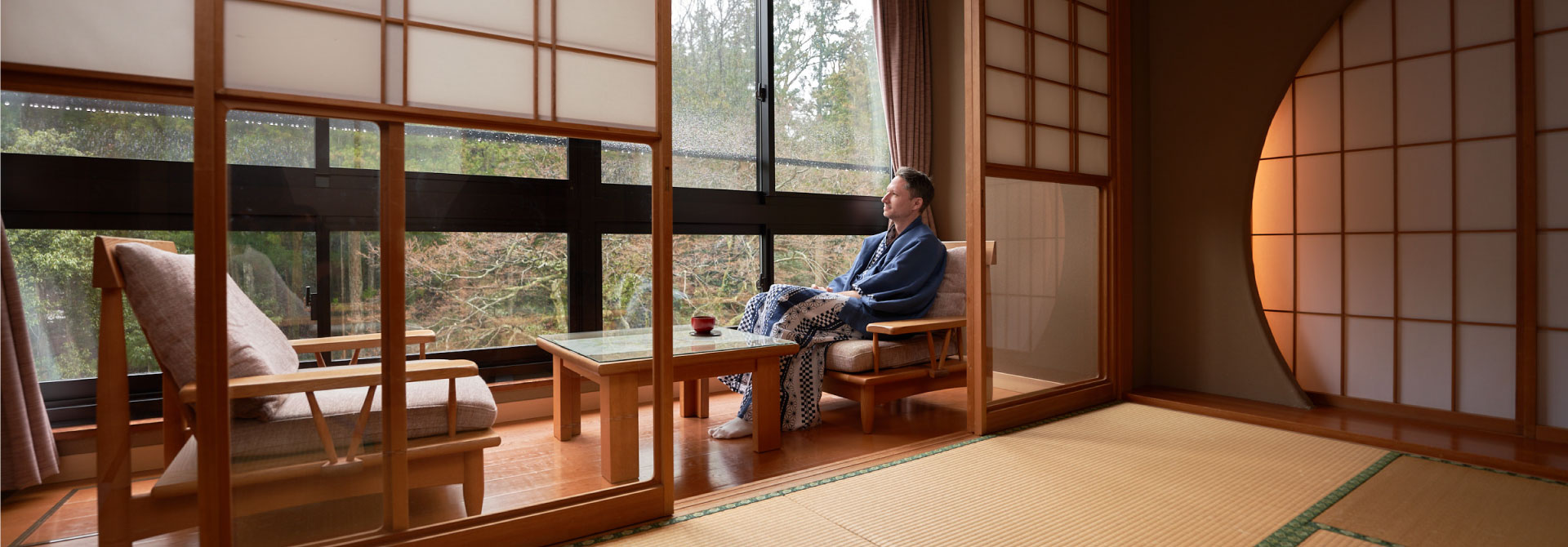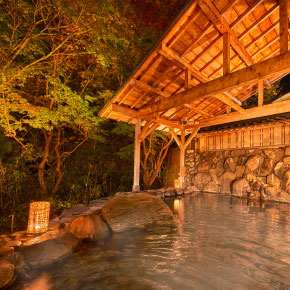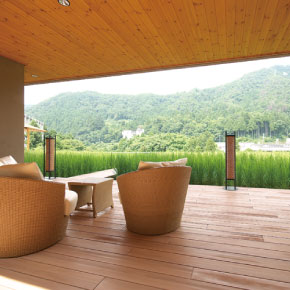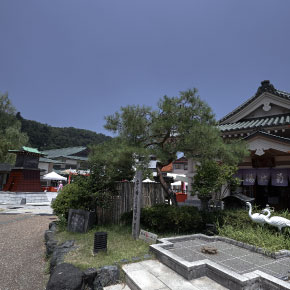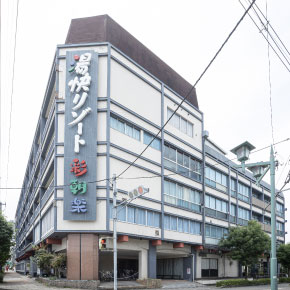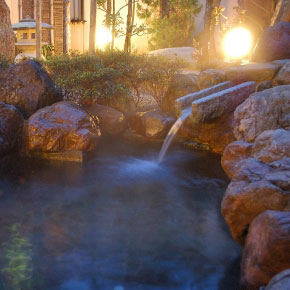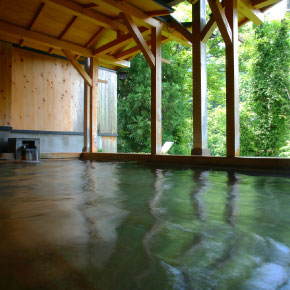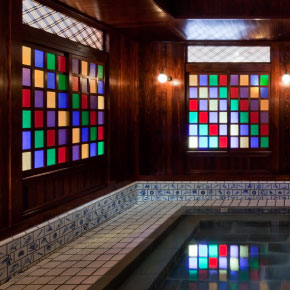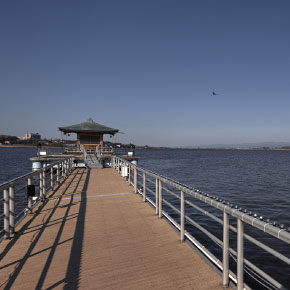
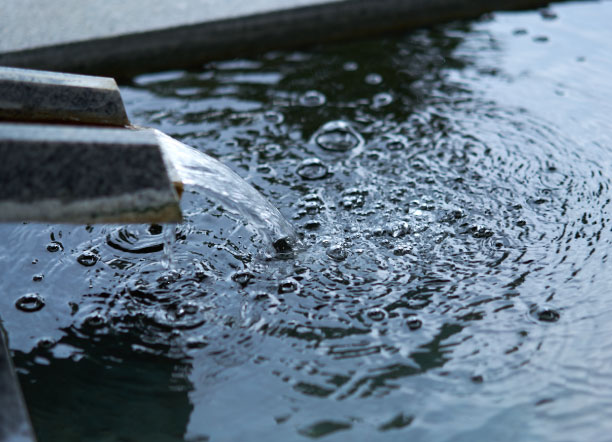
What is Onsen?
Blessed with a wealth of hot springs, Japanese people have developed a unique onsen culture that dates back to ancient times.
Onsen is the Japanese name for hot springs and is defined by the Japanese Hot Spring Law (onsen-hou). Simply put, an onsen must meet two important criteria: the water is at least 25 degrees Celsius when it surfaces, and it contains more than a defined amount of natural mineral components. Nonetheless, ‘onsen’ is an ambiguous word. When referring to individual hot springs, the term extends to cover the source of the hot water, hot spring towns, bathing facilities, and even Japanese inns or ryokan, showing how deeply rooted onsen is in Japanese lifestyle and leisure.
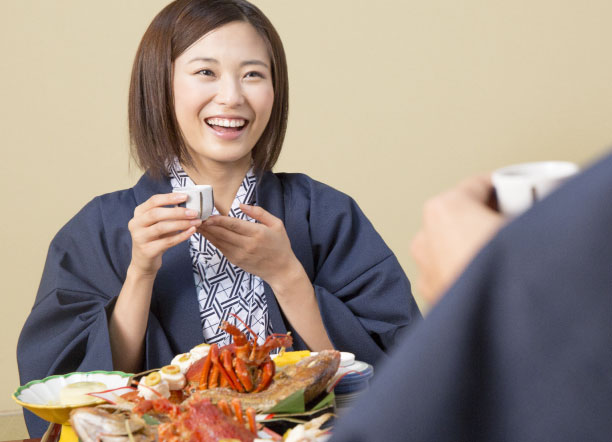
Why do Japanese People Love Onsen?
The history of onsen dates back to the 6th century. Ancient people believed that onsen was a gift from Mother Earth that had mysterious powers and would heal their wounds and diseases if they stayed in the onsen facility for a certain period of time, known as toji.
Today, onsen has become one of the most popular tourist attractions. In onsen towns you can enjoy soaking in hot springs, feasting on speciality foods and sake, strolling along the street wearing a yukata and relaxing at a nice ryokan.
In any event, onsen was, is, and will be the most beloved form of relaxation for Japanese people.
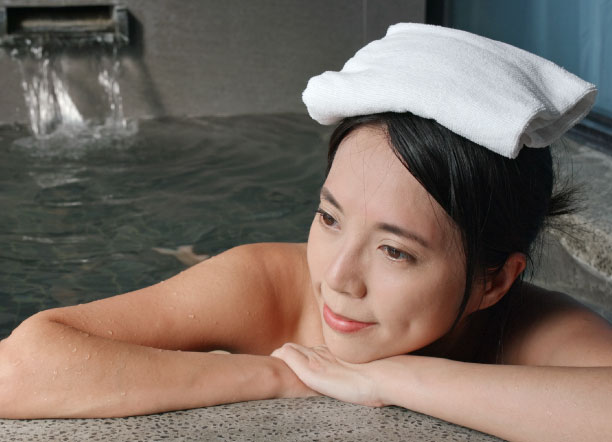
What is Onsen Etiquette?
Different from leisure or hot spring facilities in other countries that allow swimsuits, onsen is a place to refresh yourself in a natural state, and there are a few unspoken rules. First-timers may feel uneasy, but if you observe the basic rules, you can share an enjoyable time in the onsen with Japanese people.
-Scrub down thoroughly before entering the bathtub using the showers provided.
-If you have long hair, refrain from putting it in the bathtub by either tying it up with a hairband, wrapping it in a towel, or wearing a shower cap.
-Make sure your towel doesn’t touch the bathwater; traditionally, it’s placed on your head.
-Do not scrub or wash your body while in the bathtub.
-Wipe your body down with a fully wringed out towel before leaving the baths.

Are People with Tattoos Allowed in Onsen?
Times are changing, and more and more onsen (including three onsen towns in the Kaga City area) are allowing tattoos. In the West, tattoos are expressions of one’s personality, but in Japan, while they are gradually catching on with the young, they still mean one thing in the minds of most people, yakuza, Japanese gangsters. That is why visitors with tattoos aren’t allowed in onsen. However, small tattoos can be covered up with waterproof bandages.
